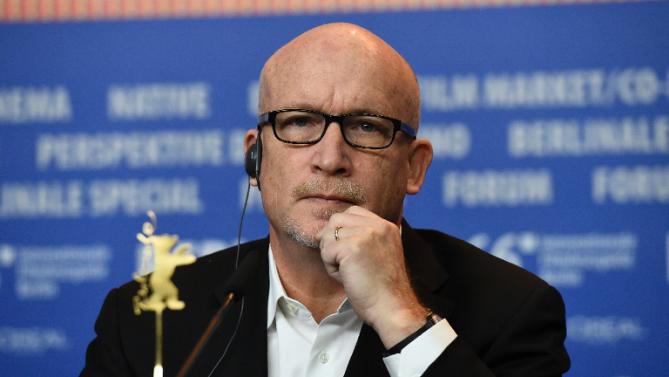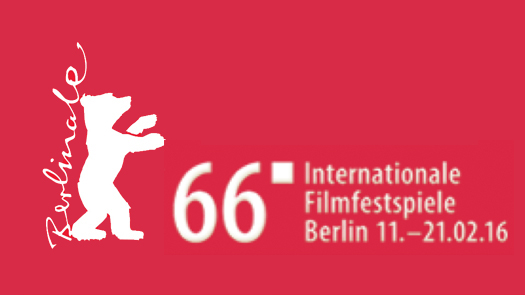Berlin Film Festival 2016: Zero Days: An interview with Alex Gibney, director

Alex Gibney is an Academy award-winning American documentary filmmaker who has treated many different issues but most noticeably the Enron scandal, Julian Assange and the Church of Scientology. His latest work, Zero Days, exposes the threat of Stuxnet, the most sophisticated virus ever created, developed by the US and the Israeli govenrment to attack Iranian nuclear facilities and how this marks the advent of a new age of cyber warfare.
How hard was it finding sources who were willing to speak on the topic?
I think some people really wanted to speak – like Michael Hayden. I think the harder part was to get people to talk about the details of Stuxnet. I have friends who were in the Obama administration who declined to talk even off the record because they were afraid they’d be polygraphed and prosecuted. So that part was very difficult. That’s why I didn’t anticipate it when I started, one of the themes of the film is secrecy.
Were you afraid at any point?
I didn’t feel fear for my own personal safety but that didn’t stop us from being cautious. We were very much flying under the radar. Although I got an amusing email today from the NSA. We reached out to them to see if they would talk to us. So we had sent them over 100 emails trying to negotiate a meeting and I just got an email today apologising for being so late on the interview request.
What kind of reaction do you anticipate from the government?
I can’t say. I hope it will get a strong reaction. It was interesting to me to note that the very day David Sanger [Head Washington Correspondent for the New York Times] had published a story about Stuxnet in conjunction with us, the Obama administration released a comprehensive cyber plan the next day so I think they’re listening.
Does your fame as a documentary filmmaker help or hurt your access to sources?
As an independent documentary filmmaker, particularly when you’re dealing with government sources, it’s not such an advantage. They’re more inclined to speak to what has become known as the corporate media than to the likes of me. I hope to provoke people, to get them to respond even if it is 100 emails too late like the NSA.
Are you very cautious about your own cyber security?
It’s difficult. I think it’s very important, from a personal point of view and a professional one. When treating a subject like this, we had to be very careful with what we said on the phone, have meetings in technology-free spaces, and we had to encrypt our phones and email inboxes. It’s also complicated personally, everybody has to begin to draw their own lines. To assume you’re being listened to and watch and how much do you want to share.
How did the narrative structure of the film come about?
It emerged organically from the initial idea of a detective story. That allowed us to pursue a case like detectives. I was closer to a bumbling detective like Colombo as the subject matter was out of my area of expertise. There were other more skilled detectives who came to our aid, like the Symantics guys who discovered the details of what Stuxnet was. Then the network expanded to journalists in Israel, and David Sanger, and then we got a glimpse of the larger political and espionage elements of the story that were beyond the cyber.
Did you try and reach out to Iranian journalists?
Well, we tried to reach out to some Iranian officials directly. We presented the premise to journalists, politicians, people who worked in the nuclear program, but there was a question of security. People were too afraid to come out and talk to us even though we offered to send a second unit out from Iran to shoot the interviews.
Do you think it’s possible to be objective with subject matter like this that affects the world as a whole, or is objectivity impossible?
I have to say it is impossible for any film to be objective. I think that films can be fair. As my mentor used to say: “I try to make films with a point of view, but I always show how hard it is to get to that point of view.” Or, to put it another way, by the Physicist Richard Feynman: “It’s good to have an open mind, but not so open that you’re brains fall out.”
How do you go about choosing your subjects for your documentaries?
A lot of the times they come to me. For instance, Zero Days was suggested by Marc Shmuger, whom I worked with on We Steal Secrets, the story of Wikileaks. I was attracted to it because of the grave implications but also because I was an amateur, a novice in the field. Sometimes though, you need to take a break. Tunneling yourself into the subject of national security 24 hours a day would drive you insane. Which is why I work on documentaries about other passions; music, cooking, sports.
Can you talk a little about that naivety? About being a novice out of your comfort zone and how it affects your process?
That’s a good question. I think it’s very important to approach certain subjects with a certain naivety or at least openness, even in my interviews. I don’t like interviews where I’m doing the finger-wagging, I like to ask the dumb questions. Sometimes you learn more by asking stupid questions than smart ones. Film is not just information. When you sit someone down for a talking head interview, you’re not just getting what they say but how they sit, how they look, how their face reacts to your questions. The filmmaker can use this material not just for the information, but how it’s said, which may cast doubt on what the person is saying and may allow you to see a more textured version. Even in the way I shoot, I try and create an environment where people can express distinctive characteristics that give a little away.
Sean Gallen
Read our review of Zero Days here.
Read more of our reviews and interviews from the festival here.
For further information about Berlin Film Festival 2016 visit here.

























Facebook
Twitter
Instagram
YouTube
RSS